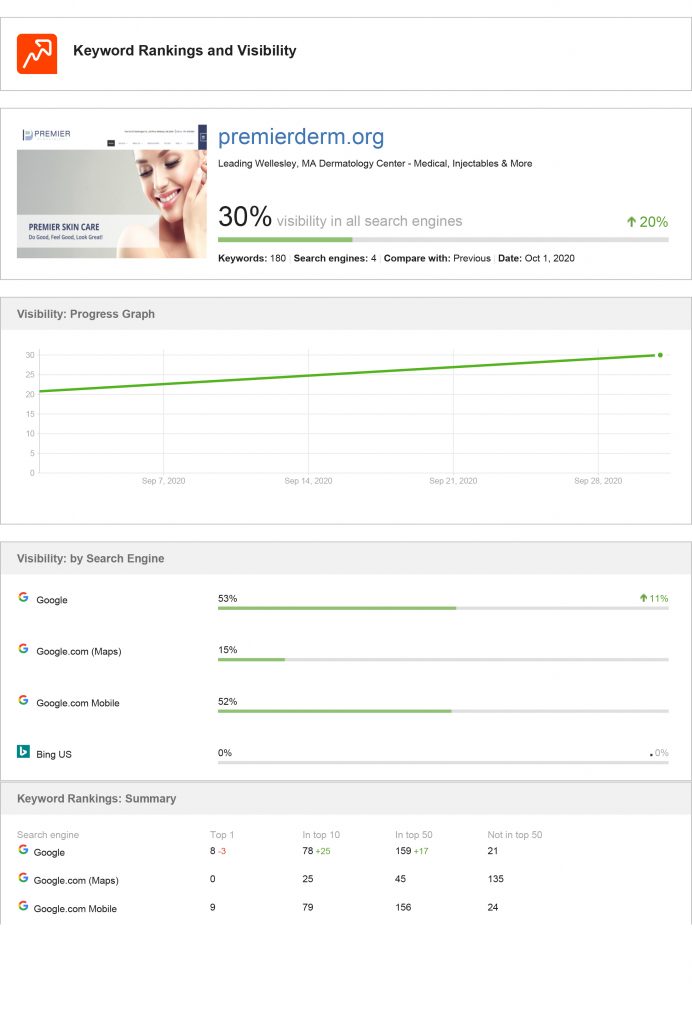You should review your SEO analytics regularly to guarantee your strategies remain effective. For larger websites or in highly competitive markets, weekly analyses help you stay on top of trends and keyword performance. Smaller sites can consider bi-weekly or monthly reviews, focusing on key metrics like traffic and engagement. New websites may benefit from reviews every 1-3 months to track their growth. As seasons and campaign goals shift, revisiting your analytics is essential for adapting to changes. Understanding these practices can empower you to optimize your approach effectively and achieve better results. There’s more to explore on this topic.
Importance of SEO Analytics
SEO analytics are crucial for understanding how your website performs in the digital landscape. They provide you with actionable insights to refine your strategies and improve your online presence. You can uncover trends that drive organic traffic to your site by leveraging traffic data from tools like Google Search Console. This data helps you identify which keywords and content resonate with your audience, enabling you to make informed decisions that align with your goals.
Regularly reviewing your SEO analytics allows you to assess the effectiveness of your strategies and adapt to changes in search engines’ algorithms. It’s essential to focus on thorough metrics rather than surface-level numbers. Monitoring key performance indicators (KPIs) like conversion rates and keyword rankings will reveal areas needing improvement and help you optimize your efforts.
Staying ahead in the competitive digital landscape requires continuous analysis. By prioritizing the importance of SEO analytics, you can enhance your website’s visibility, engage your audience effectively, and ultimately achieve better marketing outcomes. Remember, the insights gleaned from your data aren’t just numbers; they’re the foundation for sustained success in your online endeavors.
Types of SEO Analytics
Understanding the different types of analytics available can considerably enhance your ability to refine strategies and boost website performance. By categorizing SEO analytics, you can effectively target your efforts and improve key metrics influencing your success.
- Leading Analytics: These metrics predict future performance, focusing on keyword rankings and organic traffic to help you anticipate user behavior trends.
- Lagging Analytics: These reflect past performance, providing insights into conversions and sales. They allow you to evaluate the effectiveness of your previous SEO strategies.
- User Engagement Metrics: Analyzing bounce rates helps you gauge content relevance and user engagement, indicating whether visitors find your content valuable.
- Content Performance Metrics: Monitoring organic traffic volume and conversion rates enables you to assess how well your content attracts and converts visitors.
Factors Influencing Review Frequency
Several key factors dictate how often you should review your SEO analytics, impacting your ability to adapt strategies effectively and maintain competitive advantage. The size and complexity of your website play a significant role; if you’re managing a larger site or an e-commerce platform, you’ll benefit from weekly reviews due to higher traffic and frequent updates in new content.
Additionally, industry competitiveness should inform your review frequency. Staying ahead of your rivals in highly competitive niches necessitates more regular analysis. Conducting reviews every 1-3 months is essential for new websites to monitor initial performance and make timely adjustments.
Your specific campaign goals also influence how often you should explore your analytics. For instance, more frequent evaluations are vital during product launches or seasonal promotions to gauge effectiveness and optimize strategies accordingly.
Lastly, don’t overlook the effect of changes in search engine algorithms or significant traffic fluctuations; these should prompt immediate reviews to assess their impact on your website’s performance and overall SEO strategy. Considering these factors, you can tailor your approach to reviewing your SEO analytics, ensuring you remain agile and innovative.
Weekly Review Practices
Conducting weekly reviews of your analytics not only highlights significant fluctuations but also enables you to make swift adjustments to your SEO strategies. You can efficiently track organic traffic and optimize your content creation process by leveraging tools like Google Analytics. This rhythm of weekly reviews guarantees you’re not just reacting to changes but proactively shaping your strategy.
- Identify trends: Spot patterns in keyword rankings and traffic fluctuations to distinguish between temporary changes and lasting impacts.
- Monitor new content: Assess the performance of recently published or optimized content to gauge its ability to drive engagement.
- Quick adjustments: Detect potential penalties or drops in performance early, allowing for timely corrections to your SEO tactics.
- Data-driven decisions: Equip yourself with fresh insights to effectively guide your content creation and optimization efforts.
Monthly Review Practices
Monthly reviews of your SEO analytics provide a strategic opportunity to evaluate site performance. They enable you to identify trends and make informed adjustments that align with your business goals. You can perform thorough analyses by conducting these monthly reviews, allowing for meaningful month-over-month comparisons. This practice guarantees you stay updated on key metrics like organic traffic levels and conversion rates.
Utilizing tools like Google Analytics and Google Search Console during your monthly assessments can give you insights into user behavior and site health. Evaluating the effectiveness of content updates and new posts is essential, as it typically takes around six months for fresh content to stabilize in rankings. Setting specific objectives for each monthly review creates targeted insights, enhancing your decision-making process.

Tracking keyword rankings during these reviews helps you adapt your strategy effectively. By being proactive with your SEO analytics, you identify potential issues and capitalize on emerging opportunities, ensuring your efforts remain aligned with the ever-evolving digital landscape. Embrace monthly reviews as a cornerstone of your SEO strategy, driving continuous improvement and innovation.
Quarterly Review Practices
Quarterly reviews serve as a strategic checkpoint to evaluate your SEO performance more thoroughly. They allow you to analyze trends and metrics over a three-month span. This review frequency captures seasonal patterns and helps you adjust your strategies based on shifts in user behavior.
By utilizing tools like Google Analytics, you can gain valuable insights into organic traffic, keyword rankings, and conversion rates. Here are some key elements to focus on during your quarterly reviews:
- Identify seasonal trends: Recognize how search behavior changes throughout the year.
- Benchmark against competitors: Use tools to understand your standing in the market.
- Assess keyword effectiveness: Determine which keywords are driving traffic and conversions.
- Set specific objectives: Establish clear goals for the next quarter to guarantee targeted analysis.
Incorporating these aspects will help you transform insights into actionable strategies, optimizing your SEO performance. Remember, quarterly reviews are not just about looking back; they’re about proactively shaping your approach for future success.
Yearly Review Practices
A thorough yearly review of your SEO analytics is vital. It allows you to evaluate long-term trends and set strategic objectives aligned with your business goals. This extensive evaluation should encompass key metrics such as organic traffic, conversion rates, and keyword rankings, enabling you to pinpoint areas for improvement and innovation.
During this annual review, year-over-year performance data will be analyzed to identify seasonal trends and shifts in user behavior. Understanding these dynamics will help you refine your content strategy and marketing efforts. It’s important to assess the effectiveness of previous SEO initiatives, like content updates and backlink strategies, to gauge their impact on overall performance.
Use this opportunity to recalibrate your SEO objectives based on cumulative insights and evolving market conditions. Document your findings meticulously; this will help you track your progress and adapt your strategies in response to competitive pressures and algorithm changes.
Ultimately, a well-executed yearly review fosters a proactive approach to SEO, ensuring that your long-term objectives remain aligned with your performance metrics and the broader business landscape.
Tailoring Reviews to Your Goals
Tailoring your SEO analytics review frequency to specific business goals can greatly enhance your strategy’s effectiveness and responsiveness to market changes. By aligning your review schedule with your objectives, you can optimize performance tracking and guarantee you’re maneuvering through competitive niches with agility.
Consider the following factors when determining your review frequency:
- Business Size: Larger e-commerce platforms may need weekly assessments to adapt quickly, while established websites could thrive with quarterly reviews.
- Market Competitiveness: More frequent reviews are vital in highly competitive niches to stay ahead of rivals and capitalize on emerging trends.
- Website Age: New websites should conduct reviews every 1-3 months to identify growth opportunities and adjust strategies effectively.
- Specific Goals: Tailor the review frequency to your campaign objectives—more aggressive goals may necessitate more frequent analysis.
Seeking Professional Assistance
Seeking professional assistance can considerably enhance your SEO analytics by leveraging expert insights that drive data-informed decisions and optimize your strategy. Engaging with experienced SEO agencies gives you access to nuanced interpretations of your Google Analytics data, enabling you to make strategic adjustments that might be overlooked.
Outsourcing your SEO analytics reviews lets you focus on core business operations while specialists conduct thorough data analysis and performance optimization. These professionals utilize advanced tools and methodologies to uncover insights, ensuring you remain competitive.
Regular consultations with SEO experts inform you about the latest trends and algorithm changes, ensuring your analytics reviews are timely and relevant. This proactive approach improves your monitoring accuracy and provides actionable insights that enhance your SEO performance.
Investing in professional assistance ultimately leads to a higher return on investment. By embracing this strategic partnership, you’re positioning your business for sustained growth and success in an ever-evolving digital landscape. So, consider seeking expert support to refine your SEO analytics and drive impactful results.
Conclusion
In the high-stakes game of SEO, ignoring your analytics could be as catastrophic as neglecting a ticking time bomb! By regularly reviewing your weekly, monthly, or quarterly data, you can strategically pivot and seize opportunities before your competitors know what hit them. Tailoring your review frequency to your site’s unique needs is not just smart; it’s essential for survival in this cutthroat digital landscape. Don’t leave your success to chance—harness the power of analytics and dominate your niche!








